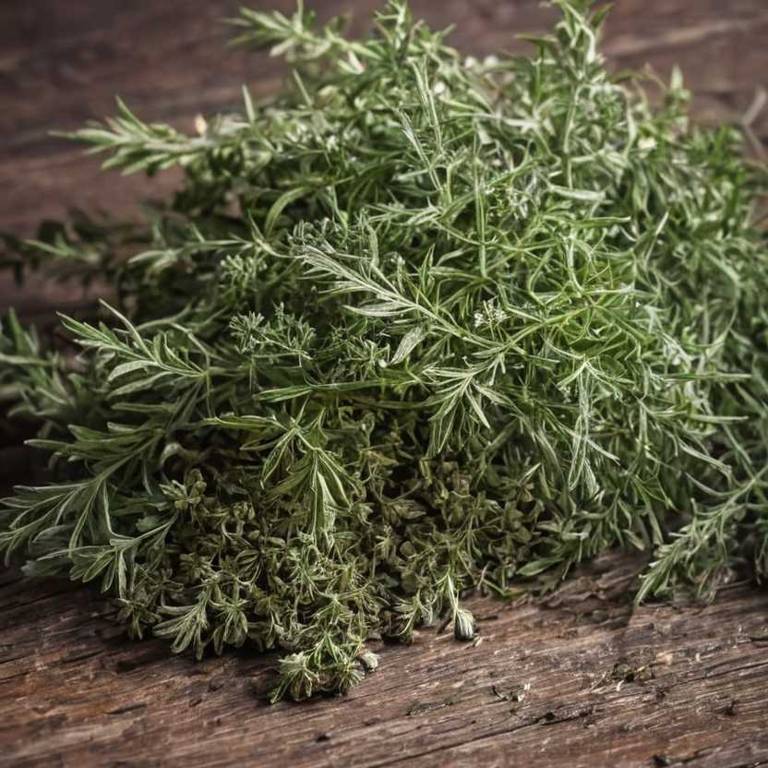Sweet Wormwood
Artemisia capillaris
Ashwagandha is a prominent medicinal herb in Ayurvedic medicine, classified as a rasayana (rejuvenator). It is primarily utilized as an adaptogen to help the body manage physical and chemical stress.
Family
Solanaceae (Nightshade)
Native Region
India, Middle East, Africa
Part Used
Root, Leaf, Berry

Botanical Identification
Sweet Wormwood, scientifically known as Artemisia capillaris, belongs to the Asteraceae family. Commonly called Chinese wormwood or mugwort, it is a perennial herb native to eastern Asia. The plant has fine, hair-like leaves and small yellow flowers, and is sometimes referred to as Artemisia annua in older herbal texts.
Active Compounds
Sweet Wormwood contains key active compounds such as terpenoids, flavonoids, and phenolic acids. These compounds work synergistically to support its medicinal properties, influencing inflammation, oxidative stress, and immune function through multiple biochemical pathways.
- Terpenoid
- Flavonoid
- Phenolic acid
Therapeutic Indications
| System | Condidtion | Action |
|---|---|---|
| Liver | Jaundice, liver dysfunction, liver toxicity, hepatic inflammation | Hepatoprotective, detoxifying, protective, anti-inflammatory |
| Integumentary | Skin infections, skin rash, dermatitis, skin inflammation | Antimicrobial, antiseptic, anti-inflammatory, anti-pruritic |
| Digestive | Gastrointestinal inflammation, gastrointestinal parasites, gastrointestinal infections, gastric inflammation | Anti-inflammatory, antiparasitic, antimicrobial, antispasmodic |
Preparation Methods
Decoction: Used for digestive issues and liver disorders.
Infusion: Used for respiratory conditions and fever reduction.
Extract: Used for treating jaundice and detoxification.
Safety Profile
Sweet Wormwood is contraindicated during pregnancy due to its potential to stimulate uterine contractions. It should also be avoided by individuals with a known allergy to plants in the Asteraceae family. Long-term or excessive use may lead to liver toxicity, necessitating caution and professional guidance.